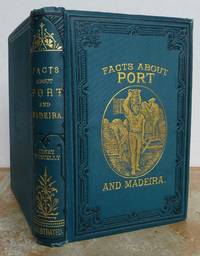
The U.S. Government Funds the Wilkes Expedition, Which Played a Major Role in the Development of Science in the United States: Ex-President John Quincy Adams, who had originated the idea of the exploration, sends money being disbursed for the exploration’s costs
- Used
- Signed
- Condition
- See description
- Seller
-
Ardmore, Pennsylvania, United States
Payment Methods Accepted
About This Item
Adams writes, “Enclosed is a draft dated this day…for 1500 dollars,…being the proceeds of the Bill of Exchange drawn by the purser of the exploring expedition Waldron in favor of Captain Wilkes, .”
It was an era of American exploration, one that led to the Mexican War and the westward expansion to the Pacific Ocean. One of the foremost manifestations of this was the famed United States Exploring Expedition of 1838–1842, which was an exploring and surveying expedition to the Pacific and Antarctic Oceans and surrounding lands. President John Quincy Adams initiated the idea and requested funding of Congress in 1828, however, Congress would not implement funding until eight years later. In May 1836, the oceanic exploration voyage was finally authorized by Congress and created by President Andrew Jackson. Navy Lieutenant Charles Wilkes was placed in command of the 7-ship exploration. From 1838 to 1842 Wilkes and his expedition explored and surveyed the Antarctic Ocean and along the Antarctic barrier, where he reported land at a number of points in the region subsequently known as Wilkes Land. He visited islands in the Pacific, including Hawaii, Australia, and Tahiti, explored the West Coast of what is now the United States, including California and Oregon, then recrossed the Pacific and reached New York in June 1842, having sailed completely around the world. He was advanced to the rank of commander in 1843. From 1844 to 1861 he prepared reports of his expedition.
The expedition is sometimes called the ""U.S. Ex. Ex."" for short, or the ""Wilkes Expedition"". It played a major role in the development of 19th-century science in the U.S., particularly in the growth of the American scientific establishment and in the then-young field of oceanography. Many of the species and other items found by the exploration helped form the basis of collections at the new Smithsonian Institution.
Though funding for the exploration was authorized by Congress, the details of paying for it were more complex. Banks advanced the funds to Wilkes, but to be reimbursed the Secretary of the Navy had to approve the bank’s disbursements. To speed up the reimbursements, at least one bank in particular determined to use its representative in Congress - in this case John Quincy Adams, who as president had first advocated the expedition. It involved a bill of exchange - or a check - made out to Wilkes for his expedition by the Navy Department, with the funds laid out by the Old Colony Bank in Massachusetts, Schuyler Sampson, president, and ultimately payable by the government to that bank. Sampson then endorsed the bill to Adams’s order to get it collected more promptly, and the Navy Secretary approved the disbursement.
Autograph letter signed, Washington, August 14, 1841, to Schuyler Sampson, bank president and Collector of the Port of Plymouth, Mass. “Enclosed is a draft dated this day no. 1308 from William Selden, Treasurer of the United States upon the Receiver General at Boston for 1500 dollars, payable at sight to my order and endorsed by me payable to you or your order; being the proceeds of the Bill of Exchange drawn by the purser of the exploring expedition Waldron in favor of Captain Wilkes, endorsed over to you and which you had transmitted to me for collection. Please to acknowledge the receipt of this letter…” Richard R. Waldron was the purser of the expedition, and thus the person the person on the ship principally responsible for the handling of money on board.
A historically important letter relating to the Wilkes Expedition, which played a key role in the development of science in the United States. That it involves Adams - first proponent of the idea - is all the better.
As for Wilkes, the Civil War brought him even more fame. When Wilkes, now an admiral, learned that James M. Mason and John Slidell, two Confederate commissioners to Britain and France, were bound for England on a British ship the Trent, he ordered the steam frigate USS San Jacinto to stop them. On November 8, 1861, San Jacinto met Trent and fired two shots across its bow, forcing the ship to stop. A party from San Jacinto led by its captain then boarded Trent and arrested Mason and Slidell. Wilkes was officially thanked by Congress ""for his brave, adroit and patriotic conduct”, but the British saw the affair as a violation of their neutrality. This almost led to war between the U.S. and Britain, but cooler heads on both sides prevailed, the Confederate diplomats were released to continue on their trip to Britain, and conflict was averted.
Reviews
(Log in or Create an Account first!)
Details
- Bookseller
- The Raab Collection
(US)
- Bookseller's Inventory #
- 22828
- Title
- The U.S. Government Funds the Wilkes Expedition, Which Played a Major Role in the Development of Science in the United States
- Book Condition
- Used
- Date Published
- 14/08/1841
Terms of Sale
The Raab Collection
10 day return guarantee, with full refund excluding shipping costs for up to 10 days after delivery if an item is returned in original condition
About the Seller
The Raab Collection
About The Raab Collection
Glossary
Some terminology that may be used in this description includes:
- New
- A new book is a book previously not circulated to a buyer. Although a new book is typically free of any faults or defects, "new"...

